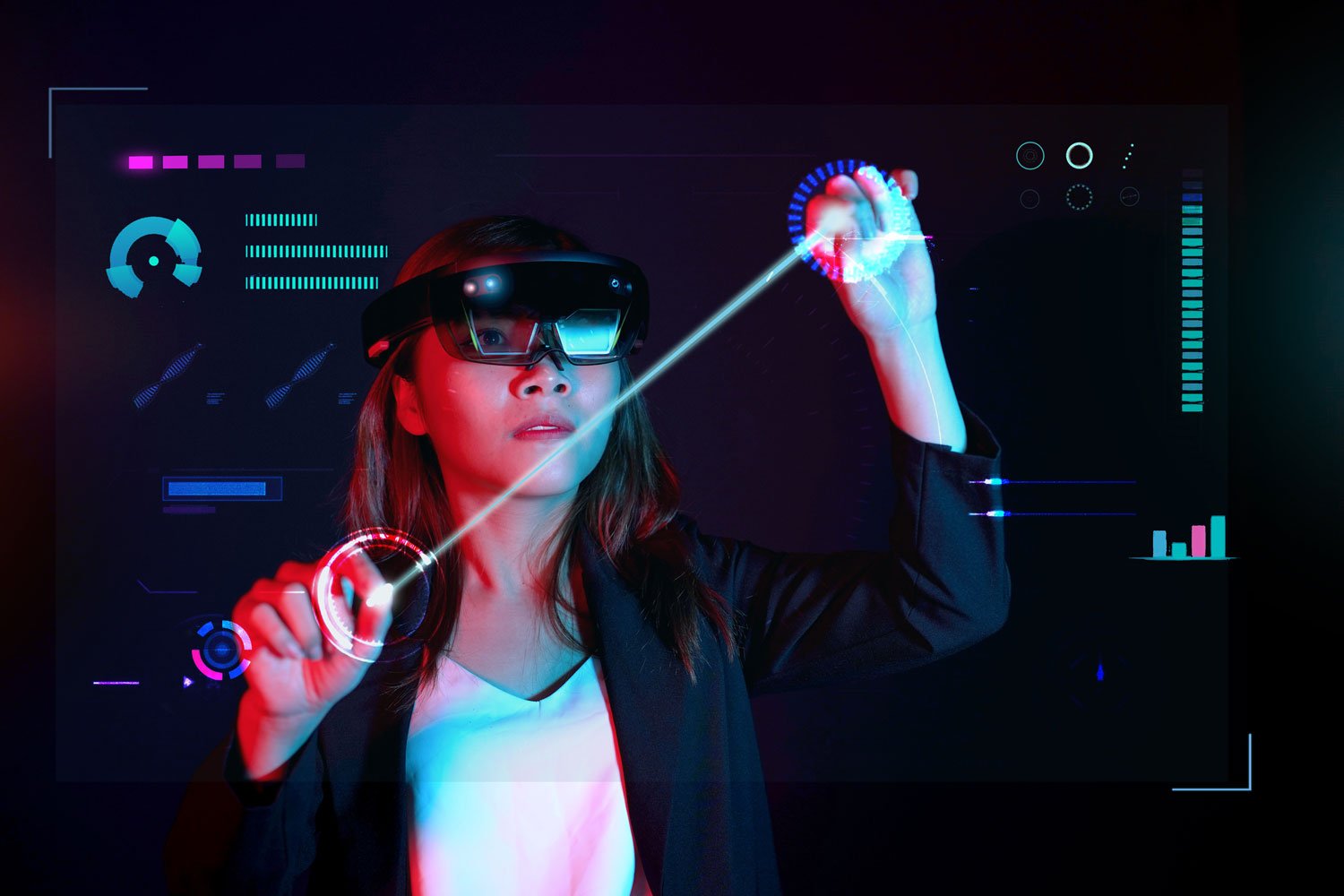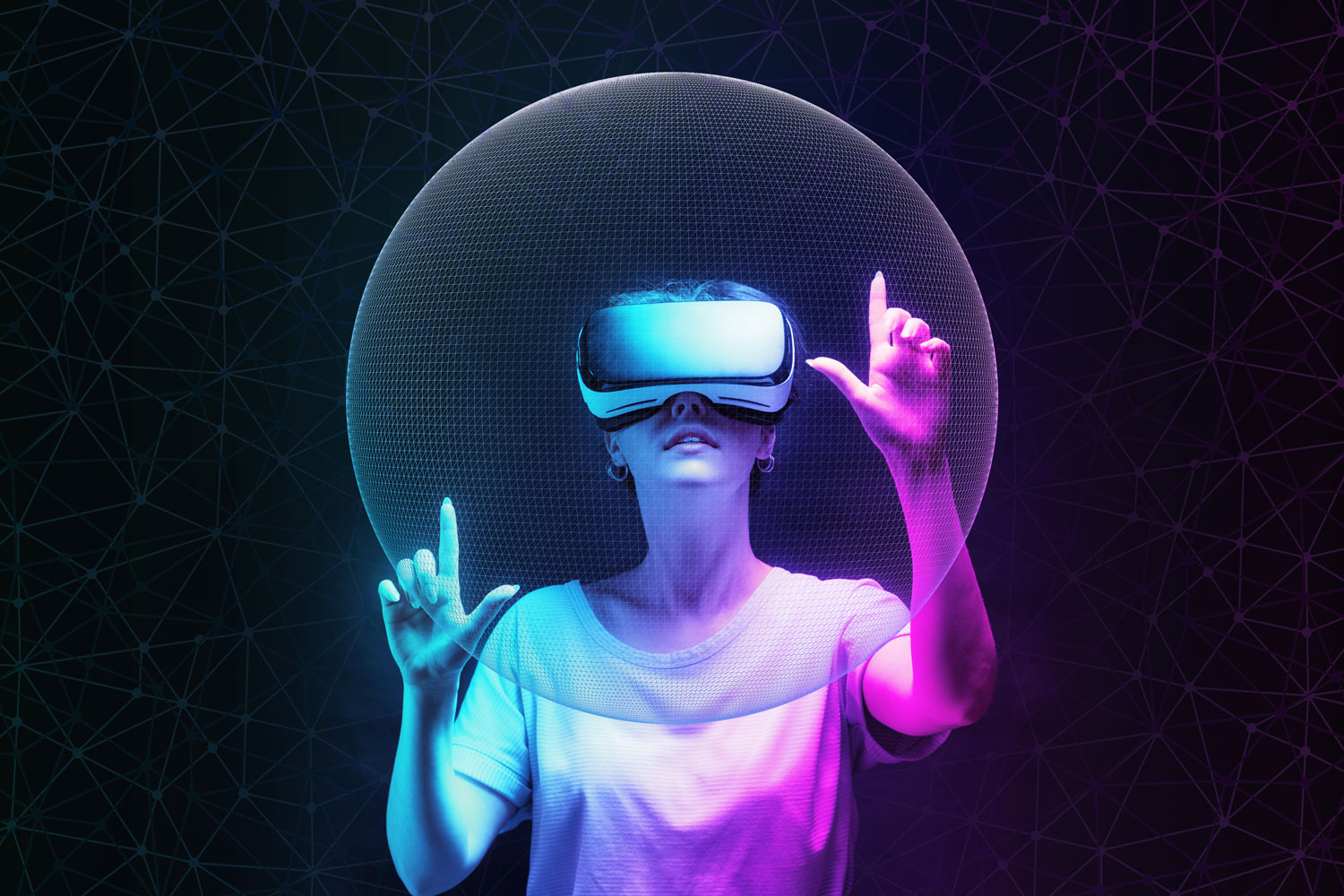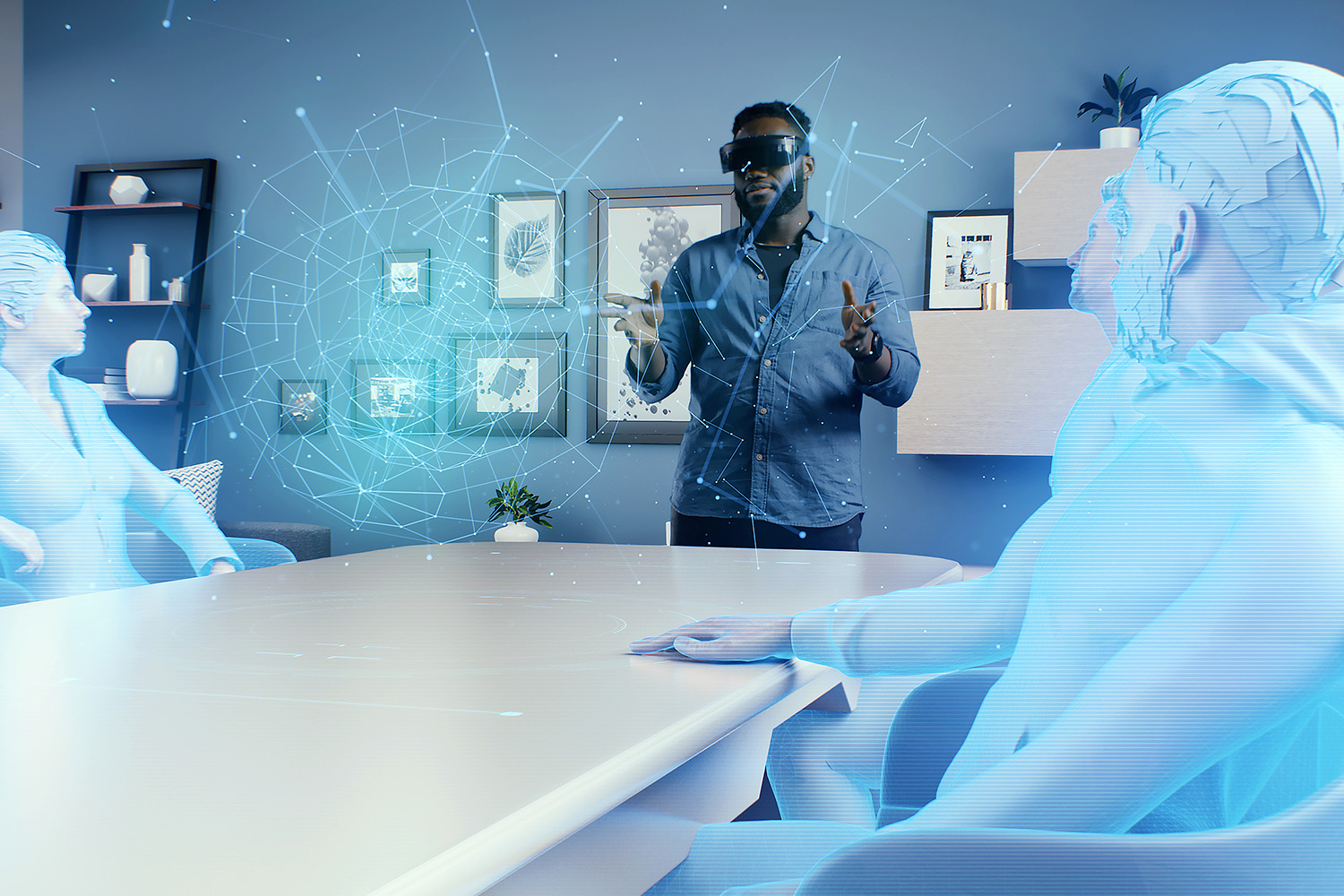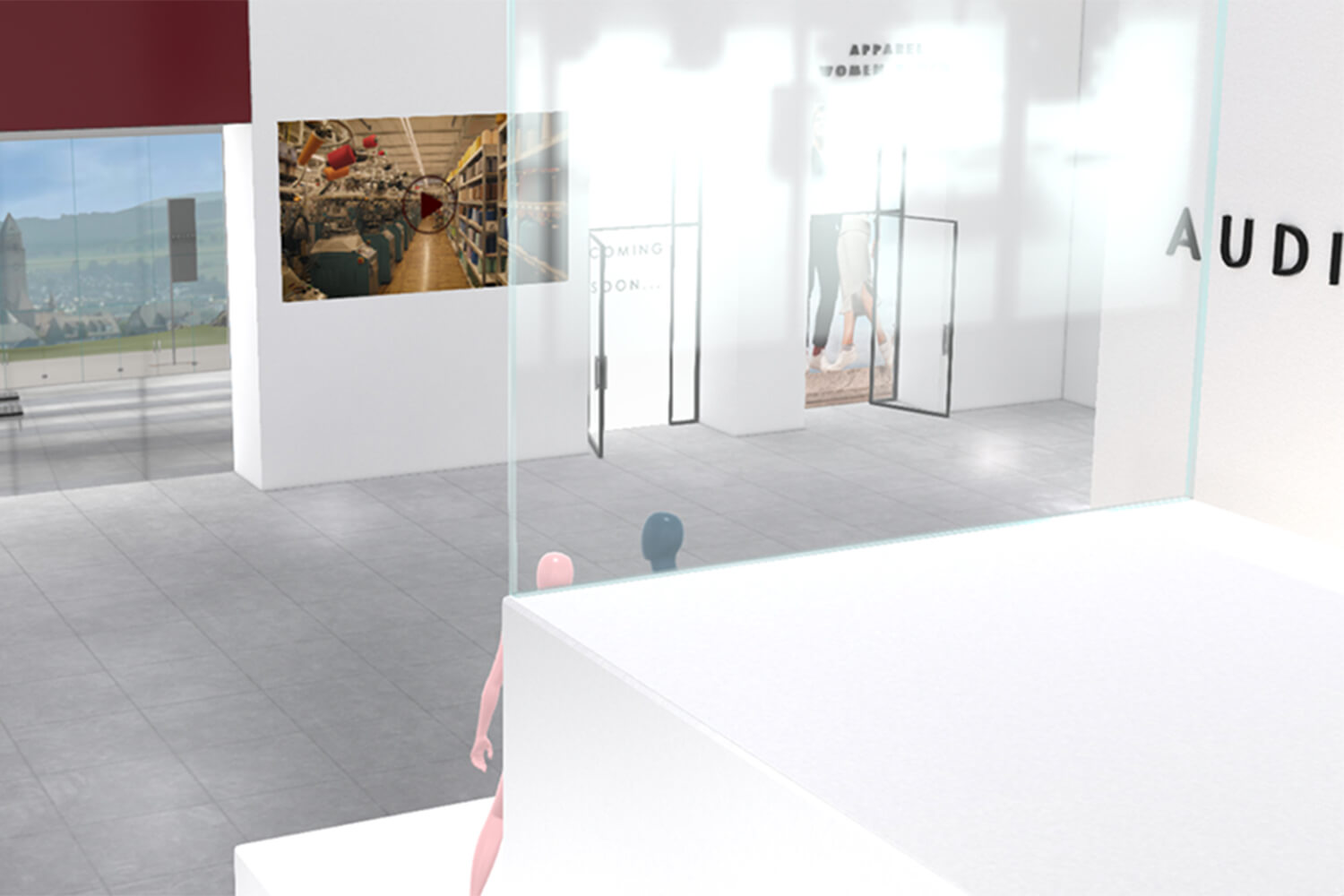The information age has changed the way we do business. With an ever-increasing number of technology products and services, it is important for companies to adapt their marketing strategies accordingly.
The shift towards the metaverse is definite. It’s primarily driven and determined by the adoption of ambitious ideas by the largest corporations in Silicon Valley, which is merely a springboard for one of the biggest technological changes in our lifetimes.
Facebook CEO Mark Zuckerberg announced that the future
of Facebook is much more than what they have currently built. He said their goal now is not just about building social apps and some hardware to support them. Instead, they’re striving for an “interconnected set of experiences straight out of sci-fi, a world known as the metaverse”. Zuckerberg said, “Our overarching goal across all of these initiatives is to help bring the metaverse to life.”
Tech giants are moving their business on the metaverse
Among many recent announcements from Facebook during October was the revelation of a plan that will create 10,000 jobs across the EU within the next five years. But one company alone will not dominate in the establishment of the “metaverse”. In the next decade, it will grow rapidly, fuelling the success of thousands of small and medium enterprises based around it and not merely in Europe but across the globe.
Epic Games CEO Tim Sweeney also believes that the ‘metaverse’ and web 3.0 by extension must take a new direction. In fact, throughout 2021 he has mentioned on several occasions that he thinks that Facebook's unique brand of herding users towards what their engines want them to see rather than allowing freer exploration is a continuous foray down the wrong path. Epic Games has shown that it’s walking the walk and not just talking. Earlier this year, the company pledged to commit $1billion towards their metaverse vision.
The metaverse is a brilliant opportunity
In the current competitive business landscape, it makes sense to give your brand every possible chance to succeed. Often that means being ahead of the curve when it comes to technology and operations. Even The Economist queried whether “big gaming will become big tech” in their September edition.
It’s clear that even if the developments in the technology sector don’t manifest exactly in line with this outlook, at least spatial experiences and augmentation will become increasingly mainstream and more important as a share of these markets. You should care right now because it appears to be a case of hop onboard or you’ll miss the train.
The metaverse should feature in your marketing strategy. It’s essential to understand it in order to then seize the opportunity that it presents and add an extra dimension to your business.
Metaverse business opportunities for small companies
The internet is far from finished, time and time again it reinvents itself. A standard internet user—approximately 62% of the world’s entire population uses it—finds themselves having to learn how to do new tasks every couple of years. Internet adoption is stable and growing, and the metaverse is just the latest iteration of its gigantic impact on our daily lives.
Web 3.0 technology has made it possible for small business owners to reach potential customers in new ways that were never before imaginable, and these days mobile devices are an integral part of the equation.
More than 78% of Americans were familiar with VR technology as of the end of 2020. That figure will now be over 80%. Globally, the market is worth more than $150bn and is expected to reach $209bn by 2022 - which is literally just around the corner. Between January 2018 and the start of January 2022 demand for standalone VR devices has grown 16-fold (1600%!).
From a B2B perspective, this means that utilising the metaverse can result in better customer experiences. One example is that users of the internet know that their activity is valuable to marketers, so the company Brave created an app to pay users in cryptocurrency for the time they browse the internet while using their system.
B2B on the metaverse
A game-changing side effect of the way that the metaverse looks like it will manifest is depth of engagement. Checking social media feels superficial these days but with spatial technology, conversations will be deeper and more personal, and masks will go down. That’s because people will reveal themselves more. The internet is rife with ‘fake’ appearances and audiences see through this increasingly as awareness of the negative effects of aspects of the online world rises as every ‘digital disaster’ headline hits the news.
The way we are living nowadays has many people feeling powerless. Without a doubt, this is an issue because it means that the social fabric and economic structures of our society are dependent on infrastructure controlled by few private companies. As the years pass their word has shown that it counts for very little. This offers a real B2B opportunity for those looking to really go after the market, especially with an ethical orientation when it comes to their 3.0 technology.
Decentralised services offer users the opportunity to take back control over their data and interact freely with other members of an online community. This new way for communities will empower people, allowing them access to information that is portable across networks—internet 3.0 does not discriminate between physical or digital spaces.
Content marketing on the metaverse
Web 3.0 will change the way we live, work and play by liberating information from our phones and bringing it to life forming a "spatial-web" in which digital content is accessible around each part of daily life.
With the power of augmented reality and virtual realities, marketing teams can create compelling new experiences that are completely personal.
AI is set to dramatically change the way we shop and make purchases. Brands will up their game by using data from consumers. Here’s an example about a car manufacturer:
A customer wants a new car. They bid on the customer information and if they get it they have one more profile. When the buyer engages an ad unit, the company creates a personal experience. It involves a virtual tour of the showroom, while the customer is 100 miles from the physical showroom. This is more likely to both please and convert the customer and it is merely one example in a sea of creative opportunities.
Interactive adventures - releasing endorphins!
Immersive experiences presented by the merging of web 3.0, the metaverse and virtual reality are great for audiences. They release endorphins in the brain that make users feel happy. This is a reason why gamification works well in many cases. As marketing becomes more 3D it’s likely that we’ll witness even the more formal topics such as B2B engineering become like open sandbox gaming and the division between the virtual and reality will become increasingly blurred.
The conversion rates due to the deep engagement should be much higher compared to current marketing methods - at least until the novelty of 3.0 wears off. Adoption to the mainstream may take several years and that’s a good thing - it means that investing in it is not just risking capital for a fad but positioning your business for the future. What would it cost you to miss out on this opportunity?
Ready to do business on the metaverse?
The metaverse has been approaching for years but now it’s finally on your doorstep and ready to really make waves. What will you do with it?
Set up your metaverse marketing strategy for next year with this in mind so that you have the head start that gives your business the best chance. Check out our metaverse technology and take your enterprise to the next level.



.jpg)





.jpg)

-s.jpg)
